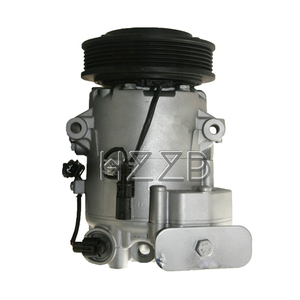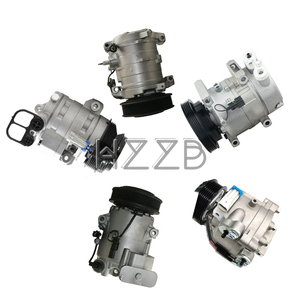(2643 products available)













































































































































Astronaut vans come in different types, and each is designed to meet specific needs. Here are the common ones:
Astro cargo van
The Astro cargo van is designed for transporting goods and has lots of space for loading. It is used mainly by businesses for deliveries and services such as plumbing or electrical.
All-wheel drive Astro van
The AWD Astro van is designed with all wheels connected to the powertrain system. This allows all the wheels to get the torque from the engine simultaneously. This is helpful for driving on rough roads and off-road roads. The AWD Astro van is known for its good grip and stability, especially on rough roads and in bad weather.
The long-wheelbase Astro van
The long-wheelbase Astro van is designed with a van with an extended chassis. The distance between the front axle and the rear axle is longer. This offers more space for the cargo or passengers. The long-wheelbase Astro van is used mostly for family transport and commercial purposes.
Regular oil change
Oil change is essential for the proper functioning of the Astro van engine. The oil change should happen every 3000 to 5000 miles. The oil change helps to maintain the health of the van's engine. The oil change allows the engine components to work smoothly without friction. The oil change also helps to remove the debris, dirt, and particles that build up in the oil over time.
Tire rotation
The Astro van tires should be rotated after every 5000 to 7000 miles. This is because the tires wear out evenly and maintain good traction on the road. When the tires are worn out, the grip is reduced, and this can cause accidents. The tire rotation also improves the fuel efficiency of the van. The fuel efficiency improves because the tires have even treading.
Brake inspection
It is important to check the brakes every 10000 miles or before a long trip. The brake inspection improves the safety of the Astro van. This is because the brake pads, calipers, and discs are checked for wear and replaced if damaged. The brake inspection also helps to avoid costly brake repairs in the long run. The brake components are checked for leaks and the fluids are topped up.
Regular engine checkup
The engine should be checked every 3000 to 5000 miles or before long trips. This is important because the air filter is clean and the spark plugs are checked. The clean air filter improves fuel efficiency. This is because the air filter traps debris and dirt and allows clean air to flow into the engine. The spark plugs are inspected and replaced if faulty. The spark plugs ignite the fuel and air mixture in the engine.
Fluid checkup
The fluids that should be checked regularly are the oil, coolant, transmission fluid, brake fluid, and power steering fluid. The fluid levels should be checked every 1000 miles or before long trips. The fluids should be topped up if low. The fluids allow different components of the van to work smoothly and prevent wear and tear.
Astro van body maintenance
The body of the Astro van should be washed regularly to prevent rust. The van should be parked away from the sun to prevent paint fading. The door hinges and locks should be lubricated every 6000 miles.
Astro van suspension maintenance
The suspension of the Astro van should be inspected every 12000 miles. This is done by checking the shocks, struts, and springs for damage. The suspension components are lubricated to prevent wear and tear. The suspension parts that are worn out are replaced. This improves the ride comfort of the van.
Astro van electrical system
The electrical system of the Astro van should be checked every 12000 miles. This is done by inspecting the battery, cables, and terminals. The cables and terminals are checked for corrosion and cleaned. The battery is replaced when faulty. The electrical system components like the lights and signals are also inspected.
Choosing the right Astro van for a business can be a challenging task. Here are some key factors to consider before making a purchase:
Usage Requirement
Consider what the van will be used for. Will it be transporting goods, moving furniture, or carrying equipment for a service business? Understanding the usage requirement will help determine the size and cargo capacity needed.
Payload Capacity
Different models of Astro cargo vans have varying payload capacities. This is the maximum weight the van can carry, including cargo and passengers. Ensure that the van chosen has a sufficient payload capacity to avoid overloading, which can affect performance and safety.
Fuel Efficiency
For businesses that rely on transportation, fuel costs can be a significant expense. Consider the fuel efficiency of the Astro van. Diesel vans generally offer better fuel efficiency than petrol ones, making them more cost-effective in the long run.
Maintenance and Reliability
Astro cargo vans are generally known for their durability and strength. Therefore, they are suitable for heavy-duty and commercial use. However, don't forget to consider the costs of repairs and maintenance services when choosing an Astro van for a business. Additionally, selecting a model with a proven track record of reliability can minimize downtime and repair costs.
Safety Features
Safety should be a top priority for any business. Look for Astro van models equipped with advanced safety features such as anti-lock brakes, traction control, lane departure warning, and blind spot monitoring. These features can protect the driver, passengers, and cargo.
Customization Options
If the van needs specific features or layouts, explore customization options. Some Astro van models offer customizable interiors, shelving, partitions, or other additions to fit the business's unique requirements.
Cost and Financing Options
Consider the upfront cost of purchasing the Astro van and explore financing options available. Some dealerships may offer leasing, financing, or business owner incentives. Evaluate the total cost of ownership, including fuel, maintenance, insurance, and potential tax benefits.
Replacing the Astro van can be easy if the steps below are followed. The steps are easy to follow and implement.
Park on a Level Surface
Ensure the van is parked on a flat, stable surface. Engage the parking brake and place wheel chocks around the front wheels to prevent rolling.
Gather Tools and Materials
Get an appropriate replacement part for the repair, whether a new brake pad, rotor, or another component. The specific part depends on the system being worked on. Ensure to have an Astrovans repair manual that contains detailed instructions. The manual will guide users on how to replace a specific part. Have basic hand tools, jacks, and jack stands within reach.
Loosen Lug Nuts
Grab a lug wrench and slightly loosen the lug nuts on the wheels that correspond to the brake system being serviced. This should be done before lifting the van to prevent the wheel from spinning.
Lift the Van
The Astro van should be lifted using a jack. After the jack is used, ensure the van is stable on jack stands. This will allow for proper work underneath the vehicle.
Remove the Wheel
Take off the lug nuts completely and remove the wheel to access the brake system.
Follow Manual Instructions
Refer to the manual for disassembling and reassembling instructions. This will help remove the brake caliper or brake spindle and support it hanging using a bungee cord.
Inspect and Replace
Inspect brake parts for wear or damage. Replace any worn components. Ensure to use parts that meet the manufacturer's specifications and standards.
Reassemble
Follow the manual's instructions to reassemble the brake system. Ensure all fasteners are torqued to the specified values. Replacing the wheel and tightening the lug nuts in a crisscross pattern will ensure proper fitting. After this, lower the vehicle and remove the wheel chocks.
Q: Is the Chevy Astro still a good vehicle to buy in 2023?
A: The Astro Chevy is no longer in production, so buying a used Chevy Astro can be a good choice. The Chevy Astro was known for its reliability, and it can still be a good van to buy in 2023. However, it's important to check the condition of the van before purchasing.
Q: How long does the Chevy Astro last?
A: The Chevy Astro can last up to 200,000 to 300,000 miles with proper maintenance. The longevity of the Astro van depends on several factors, such as driving habits, maintenance, and the condition of the vehicle.
Q: How do you maintain a Chevy Astro van?
A: To maintain a Chevy Astro van, ensure to follow the scheduled maintenance, check the tires regularly, keep the van clean, and drive it gently.